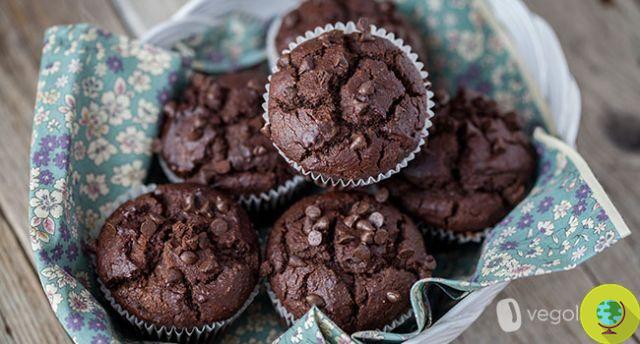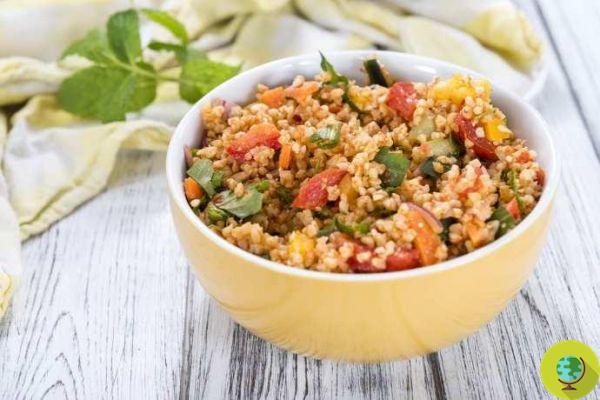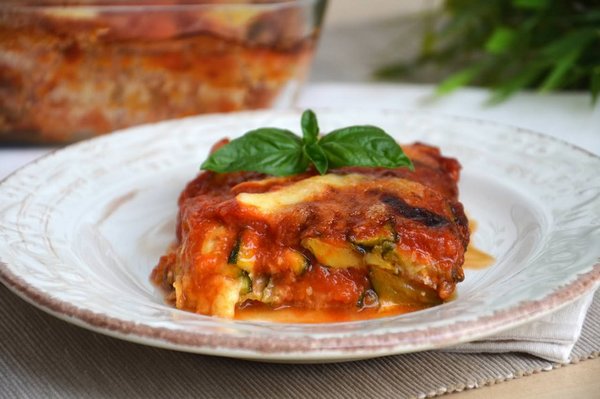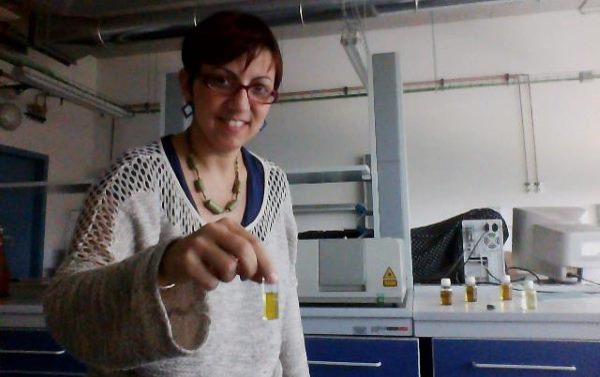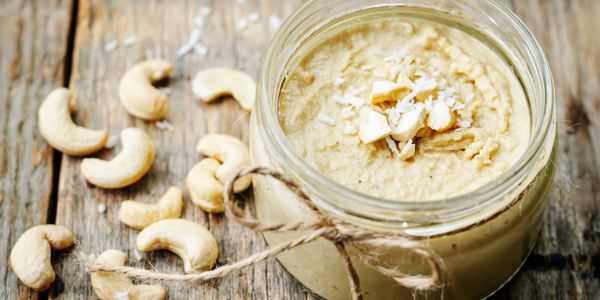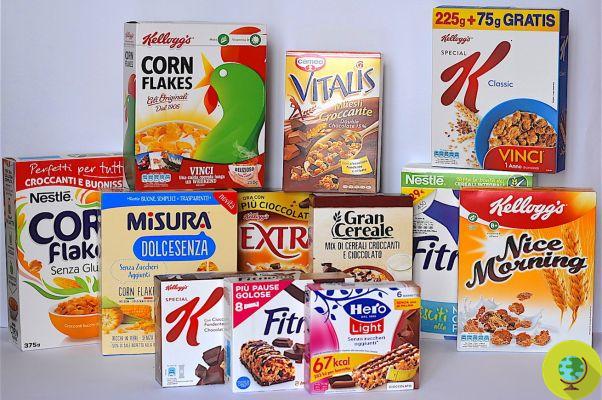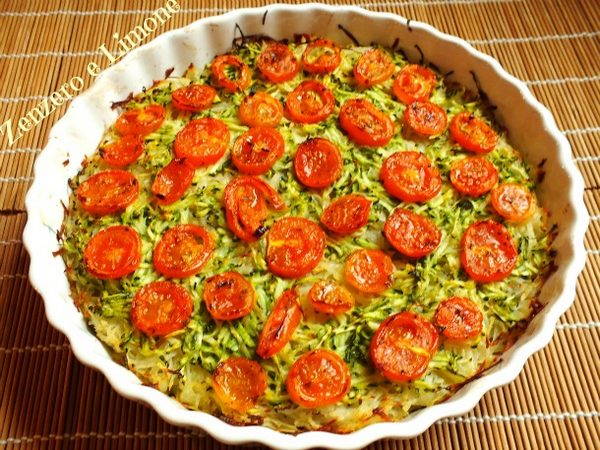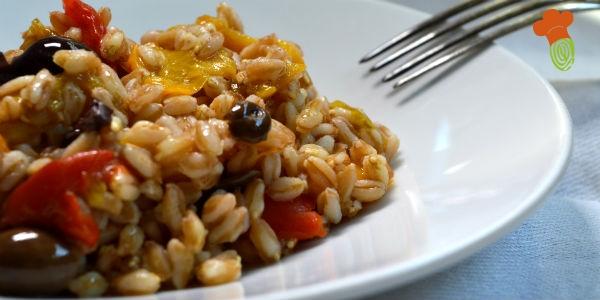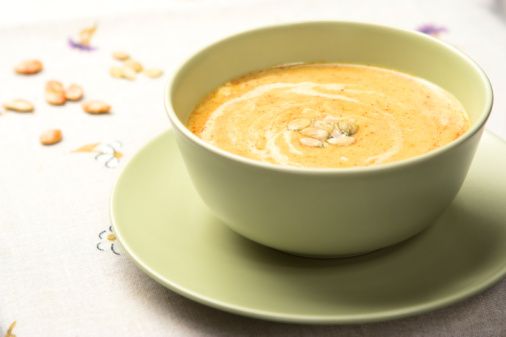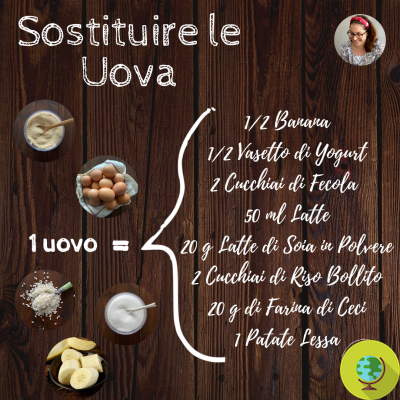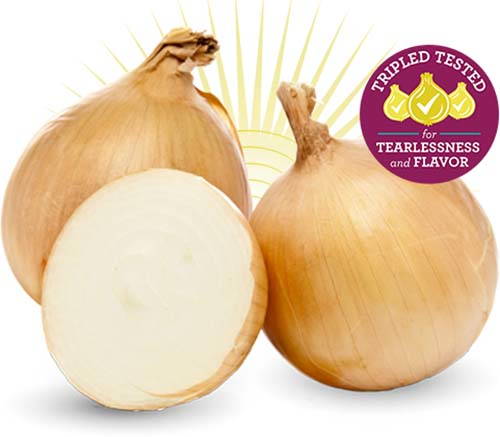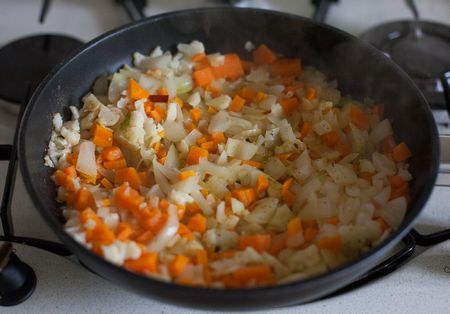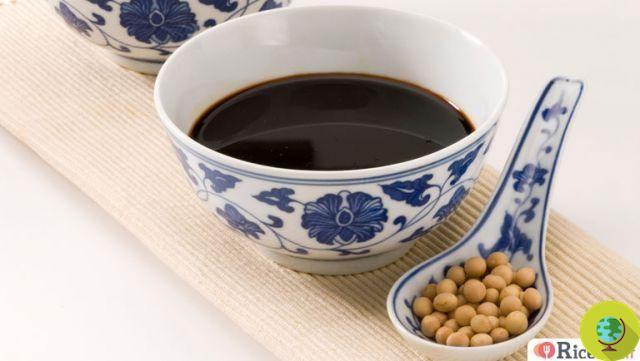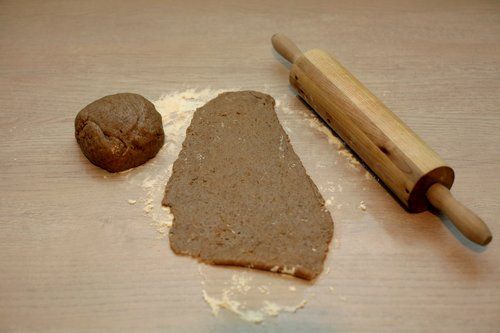Broccoli is one of the healthiest foods thanks to the presence of fiber, vitamins, minerals and antioxidants. Let's discover all their amazing properties
Broccoli, thanks to the presence of fiber, vitamins, minerals and antioxidants, are particularly healthy foods. Let's discover all their properties and the best ways to consume them taking advantage of the benefits they offer.
Broccoli (or broccoli cabbage) is a green vegetable whose shape is somewhat reminiscent of a miniature tree. It is a variety of Brassica oleracea, part of the family of cruciferous (or cruciferous) along with cauliflower and cabbage.
Of this plant the inflorescences are eaten not yet ripe, which can be eaten both raw and cooked and, in any case, are considered a kind of superfood, given the many benefits they offer to our body.
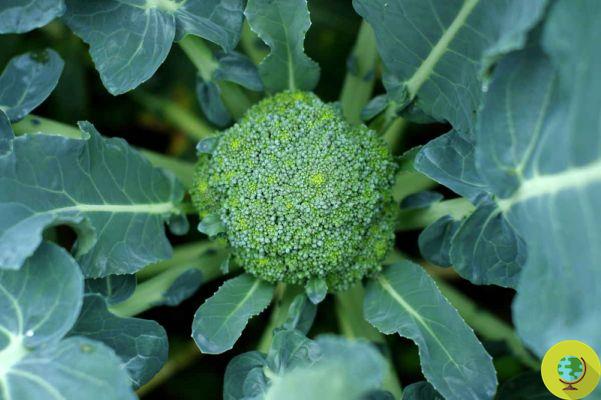
There are several local varieties of broccoli including:
- Calabrian branchy broccoli
- Sicilian broccoli
- Romanesco broccoli
- Parthenon broccoli
- Broccoli marathon
- Fiolaro broccoli from Creazzo
- Mugnulo broccoli
Here you will find other varieties of cabbage and broccoli.
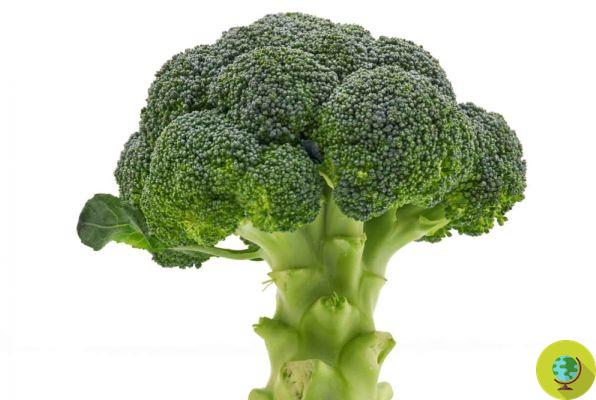
Index
Broccoli, properties
First of all we list a series of properties of broccoli that will make you understand the importance of including these foods more often in our diet, obviously when they are in season.
- Precious reserve of vitamins and minerals: Broccoli is a good source of iron, potassium, calcium, selenium, and magnesium, as well as vitamins A, C, E, K and a good range of B vitamins, including folic acid.
- Antioxidants: broccoli contains powerful antioxidants, these molecules are able to inhibit or neutralize cell damage caused by free radicals. This can result in a reduction in inflammation and a general protective effect on health.
- Promote healthy digestion and intestinal regularity: High in fiber, broccoli supports healthy bowel function and digestive health. Thanks to the presence of dietary fiber, they also help to maintain a sense of satiety.
- Help Heart Health: a study conducted by Nutrition Research found that consuming steamed broccoli reduces the total amount of cholesterol in the body and, consequently, the risk of cardiovascular disease. Another study from the United States also came to similar conclusions showing that increasing dietary vegetables, especially cruciferous vegetables such as broccoli, could reduce the risk of heart disease.
- Fortify Bones: Vitamin K contained in broccoli is an essential nutrient for blood clotting and can also play an important role in keeping our bones healthy and strong. Vitamin K can improve overall bone health, as well as increase bone mineral density and reduce fracture rates for people with osteoporosis.
- They are good for the eyes: Broccoli contains certain carotenoids called lutein and zeaxanthin which, in two studies from 2006 and 2003, were linked to a reduced risk of age-related eye disorders, such as cataracts and macular degeneration.
- Help prevent cancer: there is evidence that a healthy diet can reduce the risk of cancer. In particular in broccoli there is a key component, known as sulforaphane, which is what gives this vegetable a slight bitter taste. Studies have shown that the sulforaphane it may play a role in improving detoxification of airborne toxins, such as cigarette smoke, and may also help reduce the risk of some cancers. Further research has suggested that broccoli may have anti-cancer properties and may reduce the risk of prostate cancer. We also told you about a study last year that found the secret to blocking tumors in broccoli.
- They keep blood sugar at bay: eating broccoli can help lower blood sugar and improve diabetes control. This is likely related to the antioxidant and fiber content.
- Support brain function and slow mental decline: some of the nutrients and bioactive compounds found in broccoli can slow mental decline and support healthy brain and nerve tissue function. A study of 960 seniors revealed that a daily serving of dark green vegetables, such as broccoli, can help resist mental decline due to aging.
Other benefits that broccoli offers then are better fertility (also excellent in pregnancy given the presence of folic acid), good dental and gingival health as well as support for the liver and the immune system.
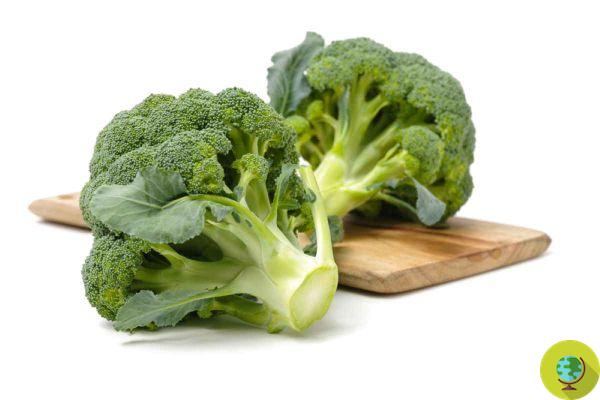
Broccoli, nutritional values and calories
100 grams of boiled broccoli provides our body with only 39 calories and 0 cholesterol. This is the nutritional table:
- Water (g): 88.3
- Protein (g): 4.3
- Lipids (g): 0.5
- Available carbohydrates (g): 4.5
- Soluble sugars (g): 4.5
- Total fiber (g): 3.3
- Soluble fiber (g): 0.84
- Insoluble fiber (g): 2.42
- Vitamin A retinol eq. (µg): 2
- Vitamin C (mg): 33
In 100 grams of raw broccoli we find instead:
- Water (g): 92
- Protein (g): 3
- Lipids (g): 0.4
- Available carbohydrates (g): 3.1
- Soluble sugars (g): 3.1
- Total fiber (g): 3.1
- Energy (kcal): 27
- Sodium (mg): 12
- Potassium (mg): 340
- Iron (mg): 0.8
- Calcium (mg): 28
- Phosphorus (mg): 66
- Thiamine (mg): 0.04
- Riboflavin (mg): 0.12
- Niacin (mg): 1.8
- Vitamin A retinol eq. (µg): 2
- Vitamin C (mg): 54
How to consume them for maximum benefits
We understand that broccoli is particularly good but few know how to eat it correctly to get the maximum benefits from this vegetable.
First of all, you need to know that too much is often eliminated. In fact, in most cases, only the central part of broccoli is consumed, completely discarding stems and leaves but this is a mistake since important substances such as fiber and beta-carotene are concentrated here. Then add a nice piece of stem and some leaves to your recipes.
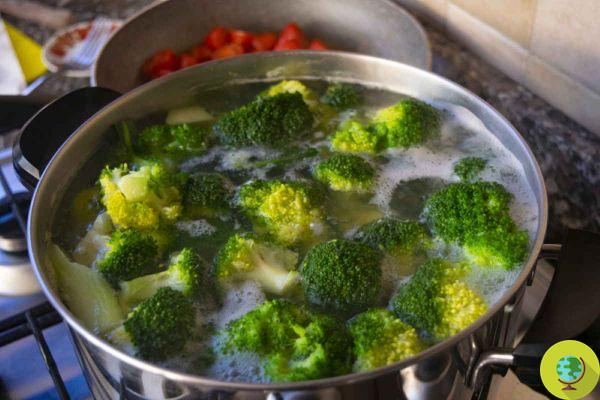
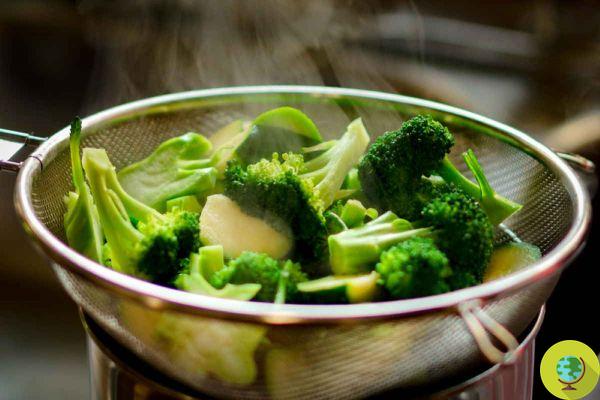
Is it better to consume raw or cooked broccoli?
A 2008 report from the Journal of Agriculture and Food Chemistry found that boiling or steaming are the best ways to preserve the antioxidant status of broccoli, but in turn it destroys vitamin C. Another study, however, has proved that raw broccoli was the best when it comes to preserving sulforaphane levels. Basically, it's okay to eat raw broccoli che cooked, however, is a valuable addition to a balanced diet.
If you don't like raw broccoli, you can prepare these vegetables with different cooking methods: boiling, frying, steaming, in the oven and even in the microwave. However, all of them in some way alter the nutritional composition of the vegetable, in particular by reducing vitamin C, as well as proteins and soluble sugar. There steaming it seems to have the least number of negative effects in this regard, so it is generally recommended.
This type of cooking, among other things, has the advantage of making sulforaphane more bioavailable, a molecule that is particularly beneficial for our health (as we have seen above).
If you then want to take advantage of their content iron not eme, because for example you are slightly anemic, you can season them with a little lemon juice (vitamin C) helps to absorb it better.
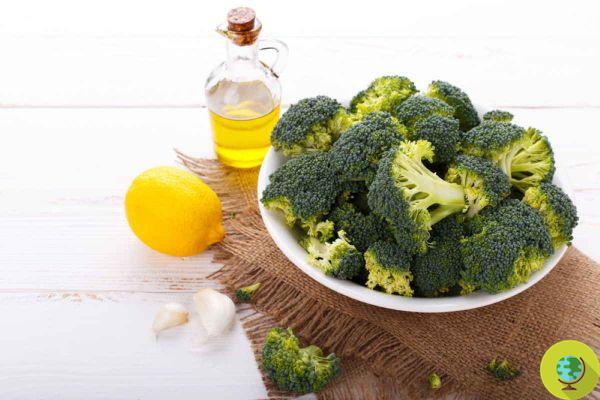
How to choose broccoli
First of all, buy the broccoli from your trusted farmer, preferably from organic farming, and then be careful to choose them carefully, paying attention not only to the consistency but also to the color: fresh broccoli is a uniform dark green. If the inflorescences begin to turn yellow, it means that the broccoli is already a few days old.
All that remains now is to taste them!
Here are some tasty broccoli recipes:
- Sicilian broccoli: 10 recipes for all tastes
- Romanesco broccoli: 10 recipes to enjoy it at its best
- Broccoli muffins
- Timbale of pasta and broccoli
- Chickpea broccoli veggie burgers with chia seeds
- Spelled and broccoli soup
- Broccoli squash (yeast-free recipe)
- Baked panzerotti stuffed with broccoli: recipe with sourdough
- Savory tart with pumpkin and broccoli: recipe without butter
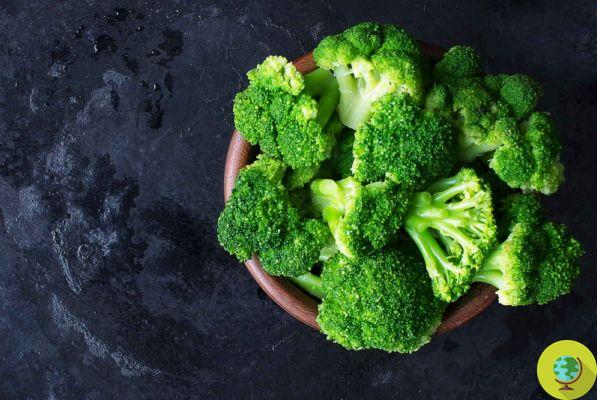
On broccoli read also:
- Cancer: from broccoli extract an aid against oral cancers
- Broccoli to detoxify from smog and air pollution
- Premenstrual syndrome? Choose broccoli and iron-rich foods
- Broccoli and broccoli sprouts to prevent breast cancer
- Carrots and broccoli fight childhood obesity
- Benefort: here is the super broccoli that helps lower "bad" cholesterol





